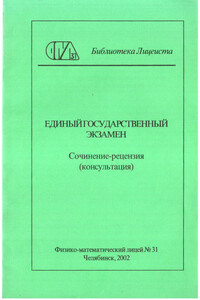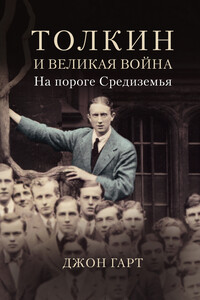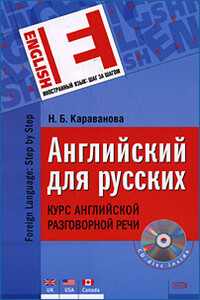Английский язык для юристов. Предпринимательское право - [7]
An offer is invalid if it is made as an obvious joke, during an emotional outburst of rage or anger, or under circumstances that might convey a lack of serious intent. The offerer's words or actions must give the offeree assurance that a binding agreement is intended. Serious intent is determined by the offerer's words and actions and by what the offeree believed was intended by those words and actions.
The offerer's words must give the offeree assurance that a binding agreement is intended.
The terms of an offer must be sufficiently clear to remove any doubt about the contractual intentions of the offerer.
The communicated terms of an offer must be sufficiently clear to remove any doubt about the contractual intentions of the offerer. No valid offer will exist when terms are indefinite, inadequate, vague, or confusing.
In general, an offer should include points similar to those covered in a newspaper story – who, what, when, where, and how [much] – if it is to be clear, definite, and certain. In other words, the offer should identify the parties involved in the contract, the goods or services that will be the subject matter of the contract, the price the offerer is willing to pay or receive, and the time required for the performance of the contract.
Sometimes laws permit offers to omit certain information. They can state that even though one or more terms are left open a contract for sale does not fail for indefiniteness if the parties have intended to make a contract and there is a reasonably certain basis for giving an appropriate remedy. For example, cost-plus contracts, output contracts, requirements contracts, and current market price contracts are enforceable even though they are not complete in certain matters. A cost-plus contract does not include a final price. Instead, that price is determined by the cost of labor and materials plus an agreed percentage markup. An output contract is an agreement in which one party consents to sell to the second party all the goods that party makes in a given period of time. A requirements contract is an agreement in which one party agrees to buy all of the goods it needs from the second party. Finally, a current market price contract is an agreement in which prices are determined with reference to the market price of the goods on a specified date.
An offer must be communicated to the offeree to be valid. The communication of the offerer's intentions may be by whatever means is convenient and desirable. It may be communicated orally or by letter, telegram, or any other means capable of transmitting the offerer's proposal. It may also be implied. Acts and conduct of the proposing party are, in many cases, successful in communicating an intention to make an offer to another party witnessing them. When acts and conduct are sufficient to convey an offerer's intentions, an implied offer results.
At times, an offer must be communicated to a party whose name, identity, or address is unknown. In such cases, a public offer is made. A public offer is made through the public media but is intended for only one person whose identity or address is unknown to the offerer. The classic example of a public offer is an advertisement in a lost-and-found column in a newspaper.
By contrast, invitations to trade are not offers. An invitation to trade is an announcement published for the purpose of creating interest and attracting a response by many people. Newspaper and magazine advertisements, radio and television commercials, store window displays, price tags on merchandise, and prices in catalogs are included within this definition. In the case of an invitation to trade, no binding agreement develops until a responding party makes an offer that the advertiser accepts.
The second major element in a binding contract is acceptance of the offer. An acceptance means that the offeree agrees to be bound by the terms set up by the offerer in the offer. Only the offeree, the one to whom the offer is made, has the right to accept an offer. If another party attempts to accept, that attempt would actually be a new and independent offer.
Unilateral contracts do not usually require oral or written communication of an acceptance. When the offerer makes a promise in a unilateral contract, the offerer expects an action, not another promise in return. Performance of the action requested within the time allowed by the offerer and with the offerer's knowledge creates the contract.
In bilateral contracts, unlike unilateral ones, the offeree must communicate acceptance to the offerer. Bilateral contracts consist of a promise by one party in return for a promise by the other. Until the offeree communicates a willingness to be bound by a promise, there is no valid acceptance.
An offer may be accepted by either express or implied means of communication. In an express acceptance, the offeree may choose any method of acceptance, unless the offer states that it must be made in a particular manner. A stipulation such as «reply by Federal Express» or «reply by certified mail» in the offer must be carried out to complete an acceptance.

«Надо уезжать – но куда? Надо оставаться – но где найти место?» Мировые катаклизмы последних лет сформировали у многих из нас чувство реальной и трансцендентальной бездомности и заставили переосмыслить наше отношение к пространству и географии. Книга Станислава Снытко «История прозы в описаниях Земли» – художественное исследование новых временных и пространственных условий, хроника изоляции и одновременно попытка приоткрыть дверь в замкнутое сознание. Пристанищем одиночки, утратившего чувство дома, здесь становятся литература и история: он странствует через кроличьи норы в самой их ткани и примеряет на себя самый разный опыт.

В сборнике представлены теоретические сведения о семантической структуре слова, о структуре текста, о типах речи, подобраны упражнения для анализа текста, также образцы рецензий на фрагменты рассказов из КИМов ЕГЭ.

Книга Дж. Гарта «Толкин и Великая война» вдохновлена давней любовью автора к произведениям Дж. Р. Р. Толкина в сочетании с интересом к Первой мировой войне. Показывая становление Толкина как писателя и мифотворца, Гарт воспроизводит события исторической битвы на Сомме: кровопролитные сражения и жестокую повседневность войны, жертвой которой стало поколение Толкина и его ближайшие друзья – вдохновенные талантливые интеллектуалы, мечтавшие изменить мир. Автор использовал материалы из неизданных личных архивов, а также послужной список Толкина и другие уникальные документы военного времени.

В новой книге известного писателя Елены Первушиной на конкретных примерах показано, как развивался наш язык на протяжении XVIII, XIX и XX веков и какие изменения происходят в нем прямо сейчас. Являются ли эти изменения критическими? Приведут ли они к гибели русского языка? Автор попытается ответить на эти вопросы или по крайней мере дать читателям материал для размышлений, чтобы каждый смог найти собственный ответ.

Предлагаемое издание – учебник нового, современного типа, базирующийся на последних разработках методики обучения языкам, максимально отвечающий потребностям современного общества.Его основная цель – научить свободно и правильно говорить на английском языке, понимать разговорную речь и ее нюансы.Отличительными чертами учебника являются:· коммуникативная методика подачи и закрепления материала;· перевод на английский язык лексики и диалогов учебника носителем языка;· грамматические комментарии, написанные на основе сопоставительного изучения языков и имеющие также коммуникативную направленность.Учебник предназначен для студентов, преподавателей, а также для всех, кто хочет научиться свободно общаться на английском языке.

Доклад С.Логинова был прочитан на заседании Семинара 13 декабря 1999 года, посвященном теме «Институт редакторов в современном литературном процессе»).От автора: статья написана на основе фактов, все приведённые имена и фамилии подлинные. Случайных оскорблений здесь нет.